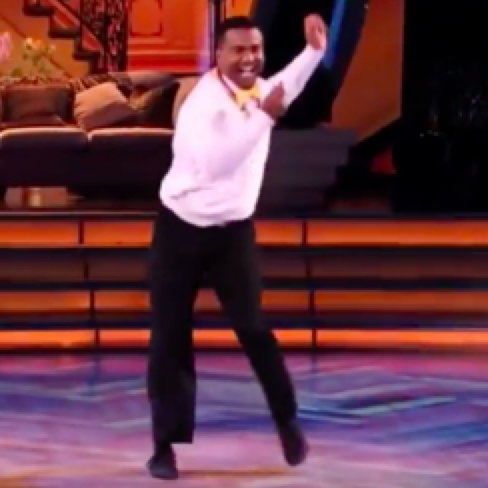Out of Step? The Dancers Suing Fortnite Creator Epic
by on 21st Dec 2018 in News

Here at TheGamingEconomy, we're not usually inclined to cover the latest developments in choreography, and muse over the thorny issue of ownership of dance moves.
But then with Fortnite's eccentric game universe continuing to dominate popular culture, anything is possible. And today being the day of the most Christmas parties all year, there's a slim chance the games industry will be a little more uninhibited when it comes to dance right now.
Over the past fortnight – no pun intended – a number of various artists have moved to sue Fortnite's creators Epic. Their issue? The game has allegedly made use of dance moves of the artist's creation without permission.
First of all, Brooklyn rapper 2 Milly revealed he was suing Epic as he believed the studio had used his 'Swipe It' dance move in Fortnite. Then the Fresh Prince of Bel-Air actor Alfonso Ribeiro – famous for playing Carlton in the 1990s sitcom – revealed himself as a complainant, accusing Epic of taking his beloved dance from the show. Next, Russell Horning, creator of the dance craze known as 'The Floss', opened his own lawsuit against Epic, after the studio made a dance comparable to his available in the game.
Back in July this year, Chance the Rapper had already made clear his belief that the rap songs associated with the dances used as Emotes in Fortnite should be included in the game, to give the artistic form and its creators fair credit and exposure.
If you've not spent any time playing Fortnite, the dances in the games are used by players to celebrate victories, taunt foes and generally put personality into their matches. And the dances are sold as in-game items called 'Emotes'; one of the revenue streams of the wildly successful free-to-play game that currently enjoys the attention of some 200 million players.
Those who feel they have created dance moves that are potentially earning Epic money in Fortnite might rightly feel they deserve a piece of the studio's enormous revenue-filled pie.
Speaking to TMZ (as reported by Videogamer) David Hecht of Pierce Bainbridge Beck Price & Hecht LLP, which represents both Ribeiro and 2 Milly, stated: "It is widely recognised that Mr Ribeiro’s likeness and intellectual property have been misappropriated by Epic Games in the most popular video game currently in the world, Fortnite."
Hecht added: "Epic has earned record profits off of downloadable content in the game, including emotes like 'Fresh'. Yet Epic has failed to compensate or even ask permission from Mr Ribeiro for the use of his likeness and iconic intellectual property."
Ribeiro is also suing developer and publisher 2K Games, as he believes their NBA 2K series also replicates his dance.
For those making, distributing, and serving video games, it brings up important questions: how carefully have you checked the usage rights for cultural touchstones included in products you work with? Where does the line fall that separates homage and infringement? And in the case of the Fortnite emotes, recent events bring up a fascinating topic. If dancing is a shared activity, where mimicry is how the art can be shared, who actually owns a particular move?
Speaking to The Guardian, specialist entertainment law firm Sheridans' Alex Tutty explained: “A dance can be protected under copyright law in England under the protection afforded to literary, dramatic, or musical works (section 3 (2) of the Copyright, Design and Patents Act).
"But copyright can subsist in it only when it is recorded in writing or otherwise. It doesn’t just exist because you did the dance; it needs to be written down or filmed.”
The fact is, you have to be able to prove that a given dance move is irrefutably your creation to claim ownership. And there have already been comparisons drawn between Ribeiro's dance and previous moves by Eddie Murphy, Bruce Springsteen, and Courtney Cox. Then there's issues like considering if the dancer, choreographer or – perhaps in Ribeiro's case – broadcaster or TV show owns a move.
One thing is clear, though: it's complicated, so be very careful as to what you include in your game, and as IAP. Legal attention might only come if a game grows large enough, but that's likely exactly what you are pursuing with your current or coming release.
DeveloperGamingMonetisationMultiplayerPlayersPublisherUncategorized







Follow TheGamingEconomy